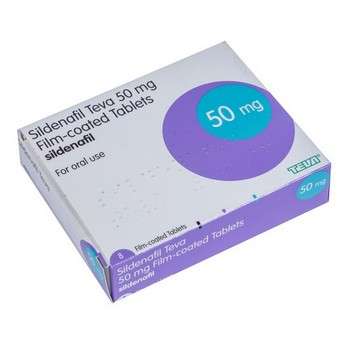It refers to a man’s inability to maintain an erection for long periods of time. It is a widespread issue, with estimates suggesting that it affects around 18-30 million men. It has significant implications for one’s quality of life. Most of the time, people are hesitant to discuss this condition with others, even their doctors. This is why it is critical to discuss it openly.
What are the technicalities of erectile dysfunction?
Along the length of the penis, there are two cylinder-shaped chambers known as corpora cavernosa. In the penis are arteries that supply blood and veins that drain it. In response to physical or mental stimulation, our brain sends a message to the nerves in the penis to relax the penile arteries. This increases blood flow to the penis, making it stiff and hard, and thereby causing erections. An erection is sustained when specialized muscles in the penis contract simultaneously, compressing the veins and reducing blood flow out of the penis.
Erectile dysfunction can be caused by anything that interferes with nerve impulses or restricts blood flow to the penis.

Causes of Erectile Dysfunction
The majority of people consider it to be a mental issue. However, this is not entirely accurate. In most cases, an ED is associated with a physical cause even though psychological factors play a role.
Physical Conditions Leading To ED
1. Vascular diseases
An erection is achieved when blood flows into the penis as a result of increased blood flow. It will be difficult to get an erection if you have any vascular disease that impairs blood flow to the penis. These include atherosclerosis, high blood pressure, and high cholesterol levels.
2. Diabetes
Diabetes mellitus patients usually suffer from erectile dysfunction at some point in their lives, particularly if their blood sugar is not under control. Diabetes causes blood vessels and nerves to be damaged, resulting in erectile dysfunction.
3. Neurologic Disorder
We need both our nerves and brain to function properly for an adequate erection. Any disorder that disrupts the brain or nerve functions can lead to erectile dysfunction. Among them are conditions such as strokes, multiple sclerosis, and Alzheimer’s disease.
4. Lifestyle
Erectile dysfunction can be caused by certain lifestyle choices. Examples include smoking, drinking, and using drugs. It accomplishes this by interfering with the circulation of blood in the penis.
5. Trauma
Erectile dysfunction can also result from trauma to the blood vessels and nerves supplying the penis. Trauma has been implicated as a cause of erectile dysfunction in people who ride bicycles for extended periods of time. As a result, the bicycle seat can cause damage to the vessels and nerves supplying the penis, leading to erectile dysfunction.
6. Medications
Erectile dysfunction can be caused by certain drugs. Antidepressants and blood pressure medications are among them. You are taking medication to treat depression and high blood pressure, and the medications are causing erectile dysfunction too. If you have problems with an erection and are taking any medications, you should talk to your doctor.
7. Surgery
Erection problems are mostly experienced by older men over 50 years of age. When people reach this age, they often present with prostate enlargement as well as prostate cancer. These conditions require surgery, and during surgery, the nerves supplying the penis may be damaged, resulting in erectile dysfunction.
Psychiatric Conditions Leading To ED
Any problem that interferes with the brain’s functioning can cause ED since the brain is involved in obtaining erections as well as experiencing pleasure and excitement from sex. Approximately 10-15% of ED cases are caused by psychiatric conditions. They include
• Stress
• Anxiety
• Depression
• Low-self esteem
How to Treat Erectile Dysfunction?
1. Lifestyle changes
There are certain life style changes which can help in the improvement of sexual function. They include cessation of smoking, exercise and weight loss.
2. Medications
There is this famous drug called sildenafil which is well known as Viagra. It is not the only drug, rather there is a whole class of drugs called phosphodiesterase inhibitors.
Sildenafil is a drug that acts as a stimulant for the heart, blood pressure and blood vessels. Sildenafil belongs to the group of medicines known as phosphodiesterase-5 (PDE5) inhibitors. Sildenafil works by relaxing muscles in the walls of blood vessels and increases blood flow to particular areas of the body. Sildenafil is used to treat erectile dysfunction (impotence) in men. Sildenafil may also be used for other purposes not listed in this medication guide. Sildenafil has almost no side effects when taken by mouth, but some possible them may include headache, dizziness, flushing, indigestion, stuffy or runny nose and blurry vision. Sildenafil can cause dizziness in some people when they stand up suddenly from a sitting or lying down position. Sildenafil may also cause other side effects that are not listed here. Sildenafil should be used only when clearly needed during pregnancy. You can buy sildenafil at https://www.postmymeds.co.uk.
3. Vacuum Pumps
Devices that contain a pump and a cylinder are called cylinder pumps. In the cylinder, the penis is placed and the air is sucked out of the pump, forming a cylinder. The cylinder increases blood flow to the penis. A band is worn around the base of the penis in order to maintain an erection.
4. Surgery
Especially in younger patients, if the cause of erectile dysfunction is blocked blood flow to the penis, we can restore that blood flow through surgery. An implant can also be placed surgically in the penis to treat erectile dysfunction. The pressurized fluid is injected into this implant whenever erection is required.
5. Psychotherapy
It can be difficult to deal with erectile dysfunction. You need to realize that if you want to get out of this troublesome situation, you have to involve your partner and consult a doctor. Another important thing to remember is to avoid any self-medication at all, as it could have lethal consequences.



























